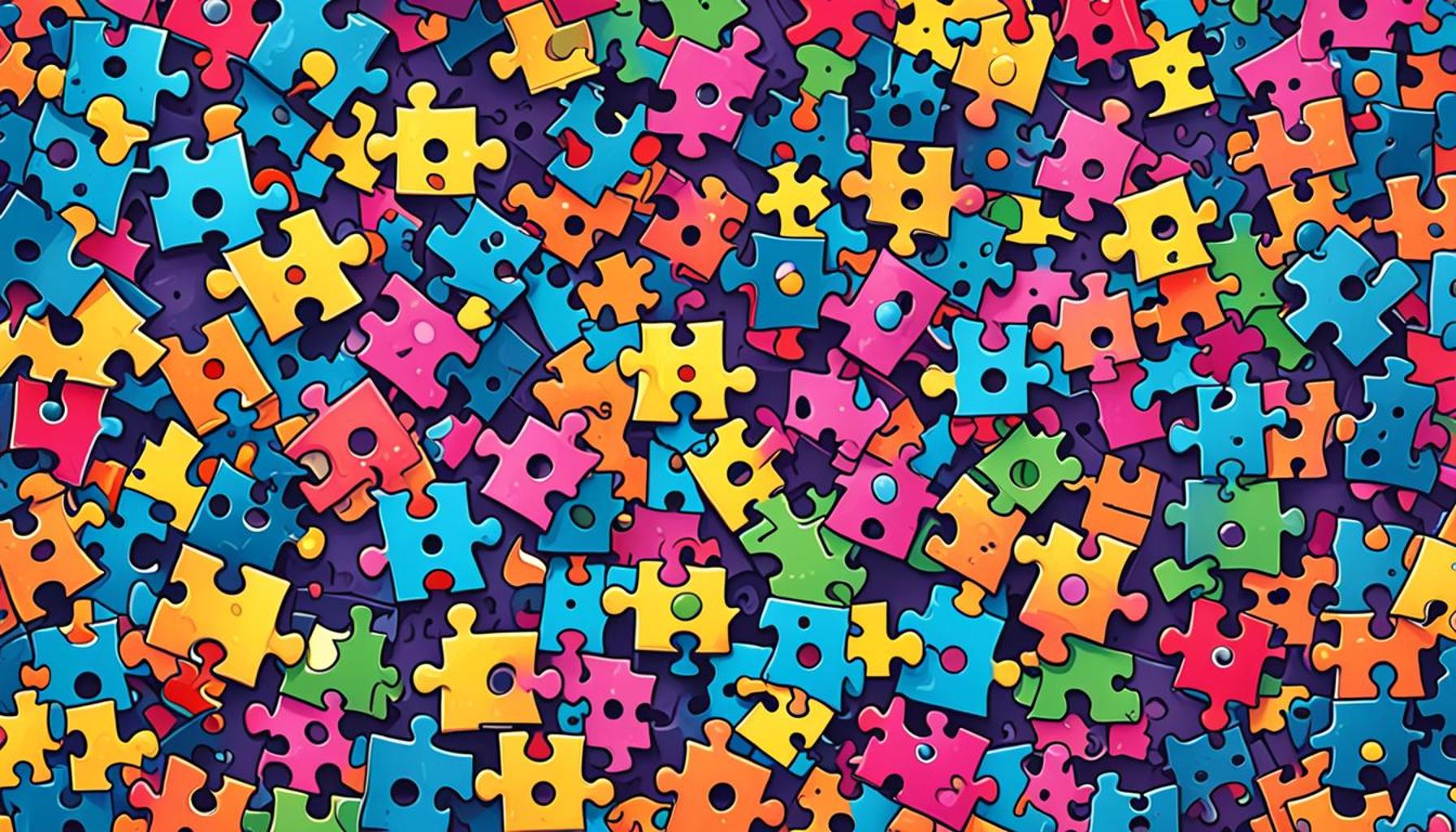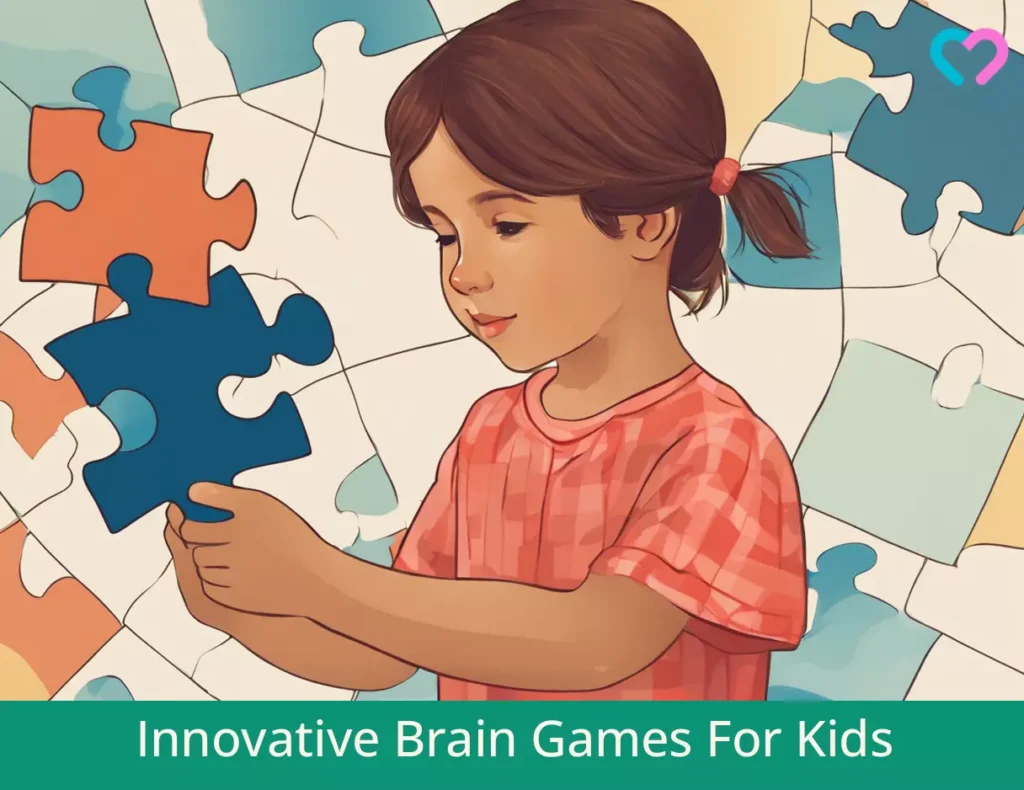Uncover the Benefits of Mixing Simple and Complex Puzzles for Mind Growth

The Cognitive Benefits of Puzzles
Puzzles serve as a multi-faceted tool for cognitive enhancement that extends far beyond mere entertainment. Engaging with puzzles—be it jigsaw puzzles, Sudoku, or crosswords—has been linked to noticeable improvements in various mental functions. Studies have shown that regularly engaging with puzzles can boost brain function, improve memory, and even stave off cognitive decline as we age. The intricacies of puzzle-solving require a blend of skills including logic, reasoning, and creativity, each contributing to a sharper mind.
One of the primary advantages of incorporating a range of puzzles into your routine is the skill improvement across different cognitive domains. Simple puzzles like jigsaw puzzles might seem trivial, but they play an essential role in developing spatial awareness and fine motor skills. These types of puzzles require individuals to manipulate pieces in three-dimensional space, which can enhance visual perception. In contrast, more complex challenges, such as logic puzzles and cryptic crosswords, engage higher-level reasoning and critical thinking abilities, pushing the brain to make connections and deductions based on limited information.
The diverse learning offered by varied puzzle types provides a rich tapestry of challenges. For instance, while Sudoku improves numerical reasoning and pattern recognition, crossword puzzles enhance vocabulary and verbal skills. This diverse exposure is invaluable—when faced with varying types of problems, individuals become adept at adapting their thinking strategies and approaches, which can be beneficial not only in puzzle-solving but in real-life situations requiring creative problem-solving.
Moreover, varying the difficulty of puzzles can lead to a substantial boost in motivation. Tackling a string of difficult puzzles can often result in frustration, which may discourage continued engagement. By alternating between easier tasks and more challenging ones, individuals keep their interest piqued. This balanced approach not only fosters persistence but also leads to a sense of accomplishment and satisfaction after solving a tougher puzzle.
The cumulative effect of engaging with different types of puzzles is a stimulating environment that is crucial for brain growth. Whether you’re piecing together an intricate jigsaw, deciphering an enigmatic riddle, or grappling with a challenging math puzzle, you are continually refining your cognitive abilities. This ongoing mental workout enhances memory recall, encourages creative thinking, and even improves emotional well-being by reducing stress.

In conclusion, puzzles are more than just a fun way to pass the time; they represent an opportunity for meaningful cognitive development. By embracing a diverse assortment of puzzles, individuals can unlock profound mental benefits, paving the way toward sharper brains and more refined problem-solving skills. As you navigate the world of puzzles, you may find that you not only become better at piecing together challenges but also at tackling the complex puzzles of everyday life.
CHECK OUT: Click here to explore more
The Rich Spectrum of Puzzle Types
Delving into the world of puzzles reveals an incredibly rich spectrum that caters to varying skill sets and cognitive needs. Each type of puzzle can provide unique benefits, making the case for why mixing both simple and complex puzzles can be a boon for mental growth. By understanding how different puzzles stimulate different areas of the brain, we can strategize a well-rounded cognitive workout.
Beginning with simple puzzles, these often serve as the building blocks of problem-solving skills. Jigsaw puzzles, for instance, are not merely about fitting pieces together; they challenge individuals to see the bigger picture while simultaneously honing their attention to detail. Research indicates that solving jigsaw puzzles can lead to improved short-term memory and increased visual-spatial reasoning—skills that are pivotal in various real-world tasks, from navigating new environments to engaging in artistic endeavors.
In contrast, complex puzzles introduce layers of difficulty that push cognitive limits. Logic puzzles, for example, require a keen sense of deductive reasoning, urging solvers to sift through complex scenarios to arrive at a solution. These types of puzzles cultivate critical thinking and decision-making skills, which are vital not just for academic or professional success, but also for everyday life challenges. Engaging with multi-step problems can enhance cognitive flexibility, allowing individuals to switch between thought processes effectively.
The Benefits of a Blended Approach
Mixing both simple and complex puzzles into a regular routine offers a wealth of benefits, including:
- Enhanced Cognitive Flexibility: Switching between puzzle types sharpens the brain’s ability to adapt to new challenges quickly.
- Improved Emotional Resilience: Successfully completing a simple puzzle can provide immediate gratification, acting as a confidence booster before diving into more challenging work.
- Increased Retention: Engaging in a variety of puzzles can reinforce learning and memory retention, as different types stimulate different neural pathways.
- Social Connections: Participating in puzzle-solving with friends or family can enhance social bonds while providing a collective cognitive workout.
This balanced puzzle approach ensures that individuals are not only sharpening their existing skills but also expanding their mental repertoire. The combination of short, engaging tasks paired with lengthier, complex challenges creates a fulfilling intellectual journey. Studies have shown that diverse mental engagements can promote neurogenesis—the process of forming new neurons—essential for maintaining a youthful and agile mind.
As you incorporate various puzzles into your routine, consider not only the individual benefits they provide but also the potential for a synergistic effect. The interplay of simple and complex challenges can lead to enriched cognitive development and a more comprehensive understanding of problem-solving in all its forms. By venturing through the vibrant landscape of puzzles, you can uncover layers of cognitive benefits that promote not just mind growth, but broader life skills as well.
Uncover the Benefits of Mixing Simple and Complex Puzzles for Mind Growth
Engaging with both simple and complex puzzles offers a unique opportunity for enhanced cognitive development. This combination stimulates different areas of the brain, allowing for comprehensive improvements in problem-solving skills and critical thinking. Additionally, simple puzzles serve as a warm-up, making them an excellent start for users before delving into more challenging tasks.
| Category | Benefits |
|---|---|
| Mental Agility | Mixing puzzles promotes quick thinking and adaptability, essential traits for efficient decision-making. |
| Engagement | Alternating puzzles keeps the brain stimulated and entertained, preventing mental fatigue and loss of interest. |
Moreover, this blend encourages creativity by pushing the boundaries of conventional thought patterns. The transition from simpler to more complex challenges enables users to experiment with diverse approaches, ultimately enhancing their overall cognitive flexibility. Incorporating a range of puzzle types also allows for personal development, as individuals can discover their unique strengths and areas for growth. By fostering this diversity in puzzle-solving, one can unwrap the vast potential hidden within the mind, guiding it toward continual enhancement and discovery.
SEE ALSO: Click here to read another article
Engagement and Motivation Through Puzzle-Diversity
One of the most compelling aspects of mixing simple and complex puzzles is the ability to maintain engagement and motivation over time. When individuals encounter a range of puzzles, their enthusiasm for solving them can flourish. This variety prevents monotony, addressing a crucial factor in cognitive engagement; research shows that varied challenges are vital for keeping the brain actively involved in learning processes. For example, a mix of fun crossword puzzles followed by challenging chess problems can make an otherwise mundane cognitive workout feel fresh and stimulating.
This blend also plays a significant role in building a consistent habit of engaging the mind. The ease of simple puzzles can make them a more approachable entry point, enticing people who may feel daunted by complex challenges. Successfully finishing a simple puzzle can encourage individuals to tackle more complex tasks, gradually expanding their cognitive abilities. Programs such as Lumosity and Peak utilize this principle, presenting users with tailored, gamified experiences that combine simple and complex puzzles to boost brain function.
Boosting Problem-Solving Strategies
Moreover, working on an array of puzzles helps to enhance problem-solving strategies. Simple puzzles often employ direct and straightforward reasoning, while complex ones typically require a multifaceted approach. For instance, solving a simple sudoku can sharpen basic logic skills, while a challenging puzzle involving lateral thinking pushes individuals to think outside the box. This crossover helps to develop a toolbox of strategies adaptable to various situations, whether in academic settings or daily life.
Furthermore, engaging with multiple puzzle types equips individuals with unique perspectives on problem-solving. A recent study published in the journal Cognitive Psychology indicated that participants who engaged in both types of puzzles demonstrated significantly enhanced problem-solving skills compared to those who focused solely on one form. The ability to approach problems from different angles can be invaluable not just in puzzles but in real-world scenarios—from business decisions to personal dilemmas.
Brain Health and Aging
The health implications of engaging in diverse puzzle types extend beyond cognitive improvement; they also serve as a protective factor against cognitive decline. The Alzheimer’s Association emphasizes that “staying mentally active may help to maintain health and sharpen the mind.” Mixing simple and complex puzzles can be a proactive method to build cognitive reserve, which plays a critical role in how well individuals can cope with age-related changes in brain function.
Especially for older adults, puzzles serve not only as recreational activities but as practical measures for preserving mental acuity. Activities that engage the brain, such as crossword puzzles in the morning followed by an abstract reasoning game later in the day, can slow cognitive decline. Moreover, participating in puzzle-related activities in community centers fosters socialization—a crucial element, especially as individuals age. Engaged social interactions during puzzle-solving can significantly amplify emotional well-being, challenging isolation and loneliness.
Combining simple and complex puzzles is not merely an exercise in fun; it represents a comprehensive strategy for engaging, empowering, and expanding the mind. This multifaceted approach is critical in harnessing the brain’s potential through enriched learning experiences that resonate throughout all stages of life.
CHECK OUT: Click here to explore more
Conclusion
In summary, the fusion of simple and complex puzzles serves as a powerful strategy for enhancing mind growth and cognitive resilience. By engaging in a variety of puzzle types, individuals can not only spark their interest and retention but also cultivate essential problem-solving skills that are applicable in everyday life. As demonstrated, the accessibility of simpler puzzles can act as a motivational stepping stone, encouraging a more in-depth exploration of complex challenges. This blend fosters a unique environment where gradually expanding cognitive abilities can flourish.
Moreover, the health benefits associated with this mix extend beyond mere enjoyment; they act as a protective factor against cognitive decline, especially for older adults. The Alzheimer’s Association echoes the importance of maintaining mental activity, emphasizing that engaging in diverse puzzle-solving activities can bolster cognitive reserve. Additionally, community involvement through group puzzle-solving can enhance social connection, enriching emotional health and combating feelings of isolation.
As we continue to explore the multifaceted world of puzzles, researchers and enthusiasts alike are prompted to delve deeper into how these engaging activities can further contribute to cognitive well-being. The potential of mixing simple and complex puzzles is not only vast but also vital for individuals at any stage of life. By prioritizing this blend in our daily routines, we open avenues for continuous learning, enriched brain function, and overall mental satisfaction.
Related posts:
Daily Puzzle Solving Tips Turn It Into a Fun Daily Habit
Popular Puzzle App Challenges Engaging Examples Strategies
Boost Educational Growth with Puzzle Solving Activities
Boost Cognitive Skills Puzzle Solving Strategies for Brain Health
Boost Brain Power Mix Puzzle Types for Training Benefits
Family Bonding and Brain Power Benefits of Logical Puzzles Together

Beatriz Johnson is a seasoned puzzle enthusiast and writer with a passion for unraveling the complexities of mind games and brain teasers. With over a decade of experience in the world of puzzles, she specializes in topics like logic games, riddles, and strategic challenges. Through her work, Beatriz empowers readers to sharpen their problem-solving skills, think creatively, and stay engaged in the ever-evolving landscape of mind games and puzzles.